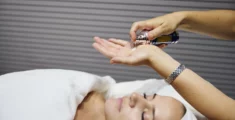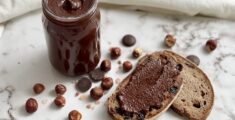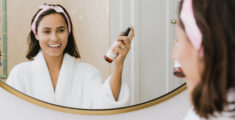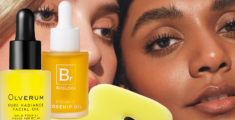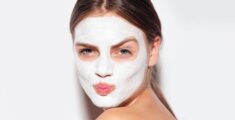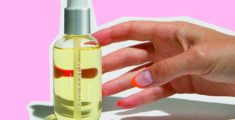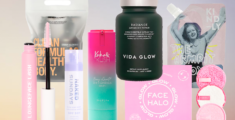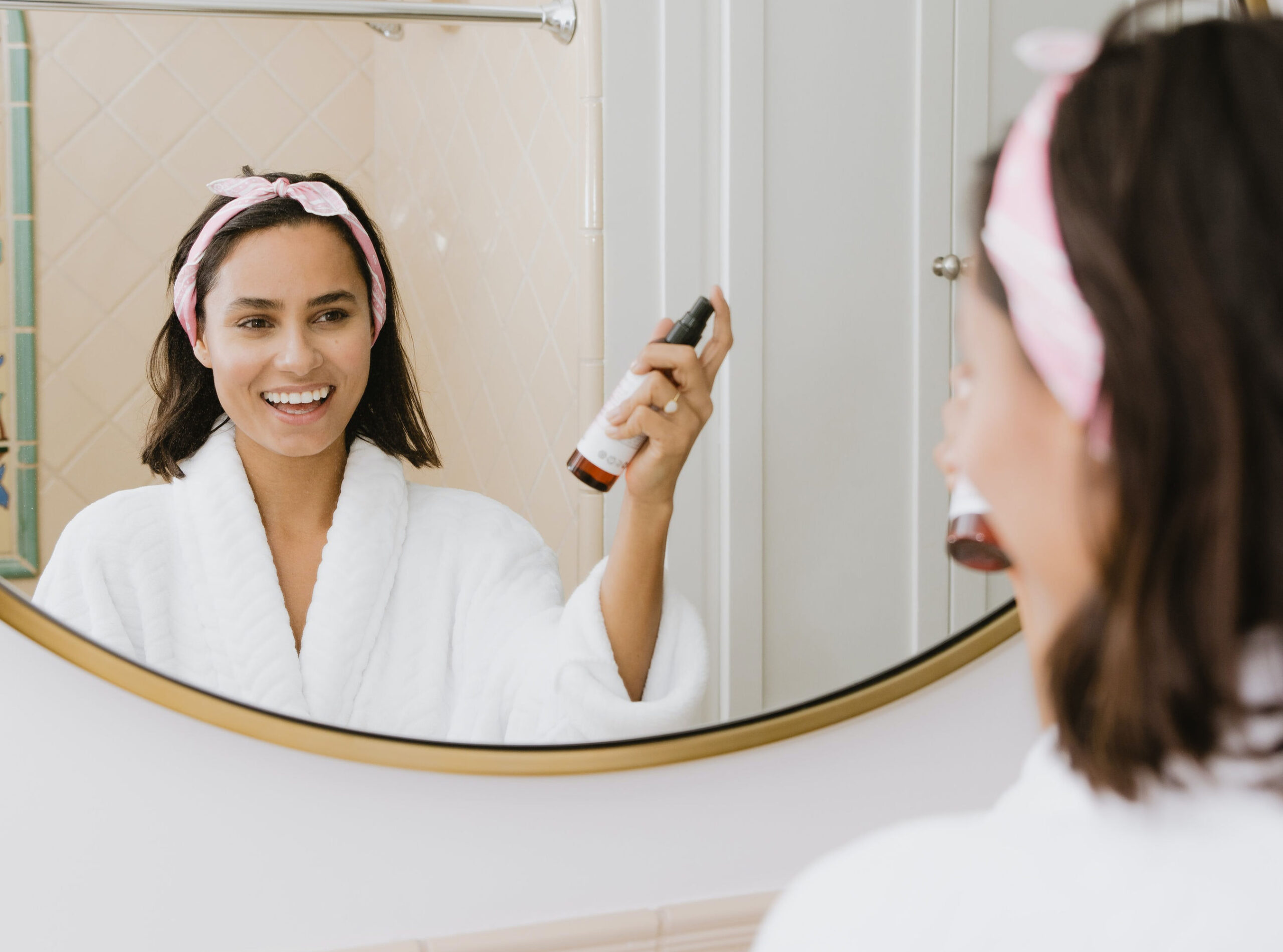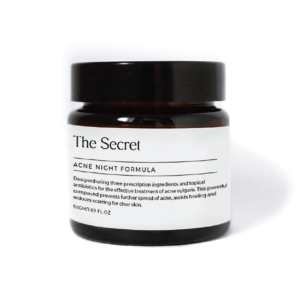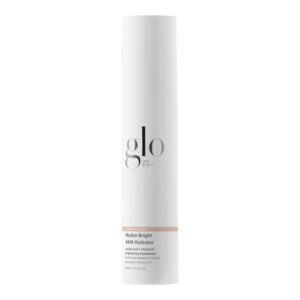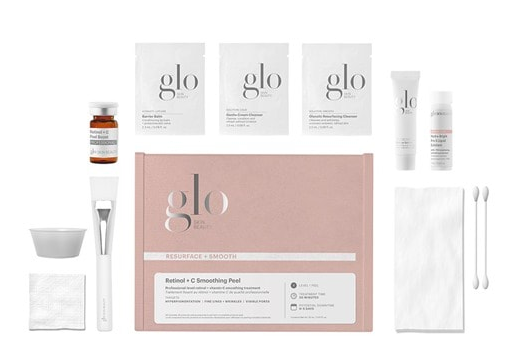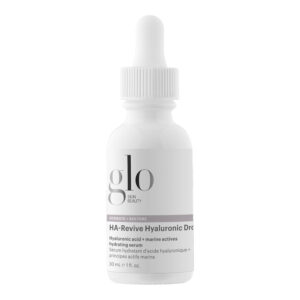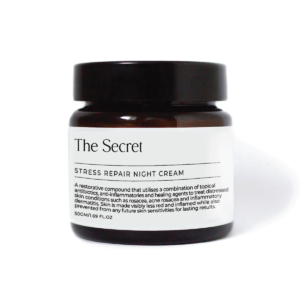Lux List Beauty: The Experts Break Down All you Need to Know about your Hormonal Acne and Skincare
This week on the Lux List Beauty edition, we cover a topic that most of you would be glad we put on the table, how to balance our sometimes crazy hormonal acne with glowing skin 365 days/year.
As you know, we are no experts, more like beauty lovers and enthusiasts, and for a topic like this, we thought it’d be best to throw the towel to the real experts out there. Thus, we’ve chatted with three beautiful and intelligent women on all things hormones and skincare so you and we can better understand how our body system works and make the most of out it with derm-approved tips. Keep reading if this sounds like your perfect reading fix!
Q & A with Dr Clara Hurst and Dr Deb Cohen-Jones, Co-Founders of The Secret Skincare and Hannah English, Pharmaceutical Scientist and Glo Skin Beauty expert ambassador.
Q
How does the menstrual cycle affect the skin?
Dr Clara Hurst and Dr Deb Cohen-Jones, Co-Founders of The Secret Skincare
Unfortunately, women are more susceptible to acne during their menstrual cycle – commonly known as hormonal acne. Of course, everyone is different, but you are more likely to see changes in your skin during this time in response to the variations in hormone levels. These hormones fluctuate throughout your cycle and cause instability in the look and feel of your skin – and ultimately manifest into breakouts at certain times of the cycle.
Acne-related to your period is more likely to flare up during the week leading up to or during your period. But it’s not all bad news; mid-cycle during ovulation, the hormones are often such that skin is at its best.
Hannah English, Pharmaceutical Scientist
Our hormones fluctuate in line with the menstrual cycle, affecting skin’s sensitivity, oil production, barrier function, and hydration levels for people who menstruate. Even if you do everything “right,” sometimes hormones have other plans – many of us experience breakouts around the time of menstruation, but you might also notice more reactive or dull skin, too.
Q
How to predict skin changes during your monthly cycle?
Dr Clara Hurst and Dr Deb Cohen-Jones, Co-Founders of The Secret Skincare
Three hormones impact your skin during your monthly cycle: Oestrogen, Progesterone and Testosterone.
During the first half of your monthly cycle, oestrogen is the primary hormone in play. Known to stimulate the production of collagen and hyaluronic acid, which heavily impacts your skin’s moisture retention and stability. When oestrogen is at its peak, your skin looks and feels plump, hydrated and glowing!
The progesterone levels rise in the second half of your cycle and stimulate the production of sebum. Sebum is an oily, waxy substance produced by your body’s sebaceous glands. The production of sebum then causes your skin to swell and compress your pores. This compression can lead to a build-up of oil and hormonal breakouts.
Lastly, testosterone remains constant throughout your cycle and takes the lead when oestrogen and progesterone dip during menstruation. Like progesterone, testosterone also triggers sebaceous glands to produce more oil, resulting in clogged pores contributing to acne during your period.
Hannah English, Pharmaceutical Scientist
Your cycle begins the day you begin to menstruate, and for the first week, oestrogen is at its lowest. You can expect the skin to be more sensitive, dry and dehydrated. There’s also less oil production due to low levels of progesterone.
For the second week, oestrogen levels increase and bring with them better hydration and healing, while oil production stays low. This is the time to live it up while your skin is at its happiest!
After ovulation and throughout week 3 of your cycle, oestrogen stays where it is, and you can expect to retain that hydration, but now progesterone is on the rise and thus, so is your oil production.
Then, for week 4, oestrogen drops, leaving your skin less hydrated and more sensitive. Progesterone levels are lower this week, too, meaning oil production will decrease again. An acne lesion takes a week or two to brew, so that spot coming up at the start of your cycle is all thanks to the extra oil production from week 3 of the last cycle!
Q
How can I overcome hormonal acne?
Dr Clara Hurst and Dr Deb Cohen-Jones, Co-Founders of The Secret Skincare
One of the most practised ways to overcome hormonal acne is to control hormone levels by taking the contraceptive pill. In doing so, your hormone levels are even throughout the cycle, and the continuous pill with no sugar pill means no abrupt hormone changes premenstrual, which can cause breakouts.
In addition, many contraceptive pills contain anti-androgenic progesterone, which reduces testosterone levels and helps reduce acne.
Other options include anti-androgen medications or diuretics prescribed by doctors – such as The Secret Cellular Repair Night Cream and The Secret Acne Night Formula.
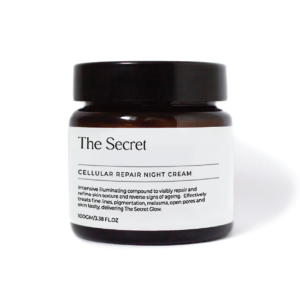
The Secret Cellular Repair Night Cream
RRP $220.00
The Secret Acne Night Formula
RRP $130.00
Hannah English, Pharmaceutical Scientist
It’s essential to find a balance between targeting that excess oil, clearing out the pores, and not taking it too far, keeping skin calm and hydrated. There are several contributing factors for breakouts – clogged pores and excess oil, acne bacteria, and inflammation (stressed skin). Regular, gentle exfoliation is the key to maintaining a clear complexion.
Glo Skin Beauty’s Hydra-Bright Pro 5 Liquid Exfoliant is a mix of 5 acids at 10% concentration is designed to be used 2-3 times per week and is appropriate for even the most sensitive skin. By clearing the dead skin cells that contribute to clogged pores, you can help prevent the hormonal excess of oil from breaking you out.
It’s also necessary to moisturise – hydrated skin sheds more uniformly, and once again, this will help with clogged pores. I know it’s tempting to skip if your skin feels oily, but moisturisers are designed to add and seal in moisture on the skin’s surface layers; they help maintain hydration (water) levels in the skin. This allows the skin to process/function as usual. I love the Glo Skin Beauty Hydra-Bright AHA Hydrator – it’s lightweight, silky, soothing, and comfortable for all skin situations.
If you suffer from hormonal acne and regularly break out during menstruation, and the breakouts are inflamed (i.e., red, swollen, or painful), think about introducing a treatment product like the Glo Skin Beauty Retinol + C Smoothing Peel. If you want to sync it to your cycle for the best result, use it during Week 3.
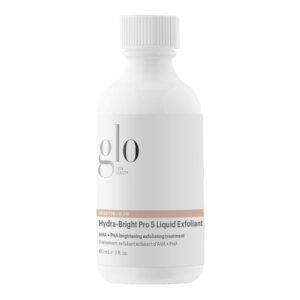
Glo Skin Beauty’s Hydra-Bright Pro 5 Liquid Exfoliant
RRP $86.00
Glo Skin Beauty Hydra-Bright AHA Hydrator
RRP $74.00
Glo Skin Beauty Retinol + C Smoothing Peel Kit
RRP $115.00
Q
How can I get glowing skin during periods?
Dr Clara Hurst and Dr Deb Cohen-Jones, Co-Founders of The Secret Skincare
You can either wait for days 12-16 of your cycle – right before ovulation when oestrogen is at its peak, and your skin looks gorgeous.
But to treat when your skin is much less likely to glow, such as during the premenstrual and menstrual phase when acne increases, it is vital to reduce topical irritants or ingredients that may cause your acne to flare.
This includes topical oils, such as face oils and oil cleansers which can be exchanged for water-based preparations during this period. Reducing sugars in the diet, increasing water intake during the week before and the week of the period can also be helpful and give your skin the best chance of surviving the dreaded hormonal acne.
Hannah English, Pharmaceutical Scientist
Apart from the above, hydrate, hydrate, hydrate! Because your skin is dehydrated and producing less oil at this time, adequately moisturising will go a long way. If you already have a great moisturiser, but you’re still feeling dull, the Glo Skin Beauty HA-Revive Hyaluronic Drops can be added for a boost, or layered under your moisturiser for extra-plump, juicy skin.
Glo Skin Beauty HA-Revive Hyaluronic Drops
RRP $129.00
Q
What is cycle syncing skincare, and how do I cycle my skincare?
Dr Clara Hurst and Dr Deb Cohen-Jones, Co-Founders of The Secret Skincare
In the week leading up to your period, it can be helpful to increase the use of products containing vitamin A to nightly and using topical antibiotics as prevention such as The Secret Stress Repair Night Cream the week before periods will create a good skincare routine that benefits your skin, creating a more controlled and consistent result.
The Secret Stress Repair Night Cream
RRP $130.00
Hannah English, Pharmaceutical Scientist
Because we know how hormone levels change and how that impacts your skin, you can focus more on treating this by slightly tweaking your skincare week on the week if you choose.
When menstruating, for week 1, consider repair and hydration and take extra care to replenish your skin after active ingredients if you need to.
Leading up to ovulation, in week 2, your skin is doing well, so enjoy!
As oil production kicks up in week 3, really target that excess oil production with regular exfoliation or even a peel (I love a peel, I don’t need much convincing),
And for week 4 leading up to your period, skin becomes more sensitive, so it’s once again time to repair and hydrate.
Q
Are there any skincare ingredients in particular that we should avoid during periods?
Dr Clara Hurst and Dr Deb Cohen-Jones, Co-Founders of The Secret Skincare
Anything oil-based is key to avoid during your period. By swapping out oil-based cleaners or face oils for water-based alternatives, you will have a better chance of self-regulating the skin and restoring a balanced ecosystem – preventing breakouts.
Hannah English, Pharmaceutical Scientist
I don’t have a blanket rule but definitely be on the lookout for signs of sensitivity in your skin. This could be a tight feeling, heat in the skin, or things tingling that usually don’t. If you experience this, make sure your more potent actives are followed with a moisturising serum (HA-Revive Hyaluronic Drops) and/or cream (Hydra-Bright AHA Hydrator).
Q
Do you recommend any external practices to keep hormones balanced during your monthly cycle?
Hannah English, Pharmaceutical Scientist
It’s entirely normal for hormones to fluctuate, and the only external thing I’d do is observe your skin, if you can, and get to know how it changes throughout your cycle. There’s not a proven link between food intake and breakouts, and restrictive food plans can be harmful when we’re already critical of our appearance, so I’d love for you to enjoy your life and enjoy your food because great skincare and a peel here and there will take care of it for you!








































